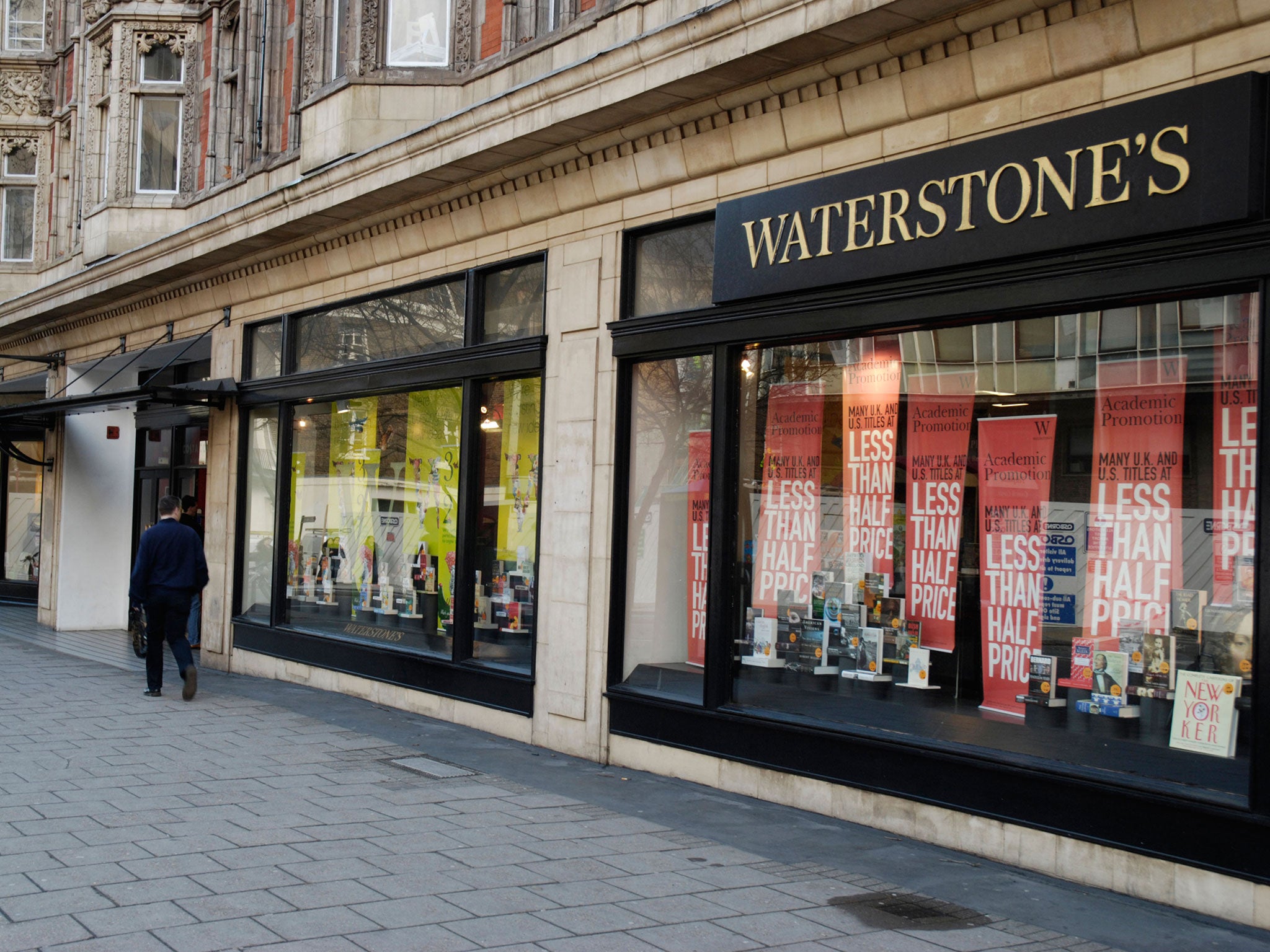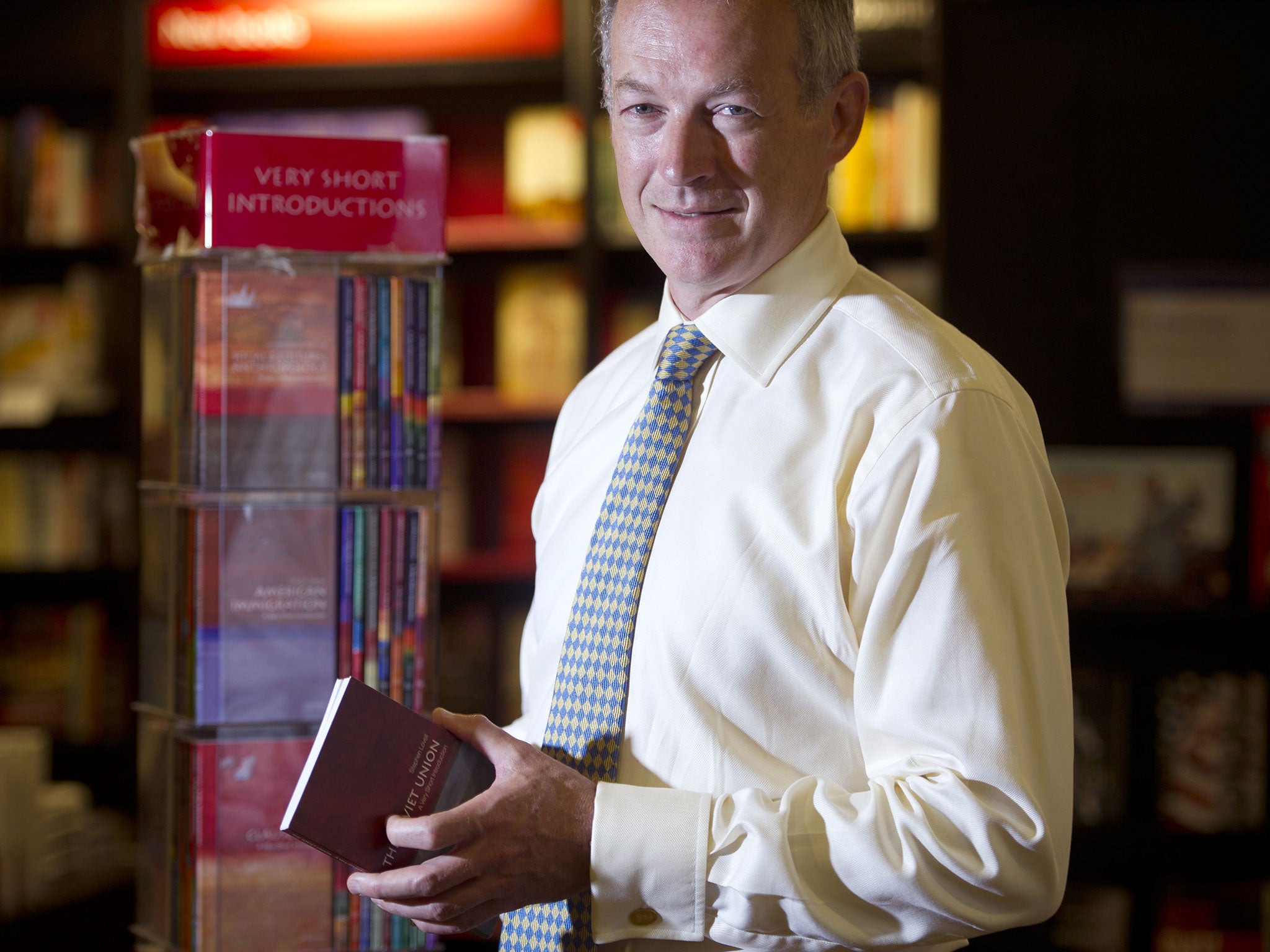London's latest Waterstones proves that ebooks have far from cornered the market
The launch of the books megastore is a nail-biting new chapter for printed word

Your support helps us to tell the story
From reproductive rights to climate change to Big Tech, The Independent is on the ground when the story is developing. Whether it's investigating the financials of Elon Musk's pro-Trump PAC or producing our latest documentary, 'The A Word', which shines a light on the American women fighting for reproductive rights, we know how important it is to parse out the facts from the messaging.
At such a critical moment in US history, we need reporters on the ground. Your donation allows us to keep sending journalists to speak to both sides of the story.
The Independent is trusted by Americans across the entire political spectrum. And unlike many other quality news outlets, we choose not to lock Americans out of our reporting and analysis with paywalls. We believe quality journalism should be available to everyone, paid for by those who can afford it.
Your support makes all the difference.Those who believe that rumours of the book’s demise have been greatly exaggerated have received a substantial boost last week when with the announcement by Waterstones announced that it is to open a three-storey flagship store in central London.
The UK’s only remaining specialist national book chain will open the 7,000squarefoot shop on London’sthe capital’s Tottenham Court Road in October. Its doors will be open in time for “Super Thursday” – 8 October – when publishers begin their assault on the Christmas market, and this year a staggering 503 new titles will be vying for readers’ attention.
News of the opening sent an “encouraging signal out to the book community”, said Tim Godfray, chief executive of the Booksellers Association. He was “delighted” by the news, as the book retail sector had been badly affected over the past nine years “by the power and dominance of Amazon”, online physical book sales and ebooks.
The announcement of Waterstones’ new store – and a suggestion that it intends to open even more shops in the capital soon – comes just a year after its rival, Foyles, unveiled its own Tottenham Court Road superstore, featuring a café, gallery and space to host concerts.
Both retailers hope to capitalise on the resurgence of the area boosted by the arrival of the Crossrail link in 2018, but the new shops have also eased fears that the growth of ebooks is killing off the printed word.
Waterstones managing director James Daunt, who built the eponymous Daunt Books chain, dubbed Amazon a “ruthless, money-making devil” in 2011. A year later he signed a deal to sell its Kindle ebook reader, but Waterstones has struggled to sell the devices and has reduced the amount of space given over to them in its stores.

Sales of ebooks from the UK’s five largest publishers – Penguin, Random House, Hachette, HarperCollins, Pan Macmillan – totalled 49 million last year. It is a 15 per cent increase on 2013, but a slower rate of growth compared with previous years.
Rising rents and rates – coupled with increasing competition from online retailers of physical and digital books – have cast a shadow over high-street book shops. But Philip Downer, former chief executive of Borders, which went bust in 2009, believes the future is bright.
He told The Independent on Sunday: “The bookshop is absolutely not dead. The pleasure of owning an attractive object and being able to show it off still carries weight. How can you boast that you’re reading the new Harper Lee with a Kindle?”
“People are definitely reading more on their smartphones, but they still have the desire to have something tactile,” said Downerhe added.
Campaigners claim 56 per cent of all book-buying decisions are still made in bookshops, and shop purchases still account for almost 40 per cent of sales. In the UK last year, £2,748m million worth of printed books were sold, compared with £563million for digital books.
Despite this, figures from 2014 showed that 48 independent bookshops shut their doors last year, only slightly lower only slightly not that far down on 2013, when 67 closed and 26 opened.
Tim West, co-owner of The Big Green Bookshop in Wood Green, north London, and a former Waterstones manager, said the bookshop sector was stabilising: “I’ve always thought that blaming ebooks for why a book shop is not successful is a very weak argument. Book shops provide more than just reading material,” he said.
To survive, he said, independent bookshops now needed to draw on their individuality and provide offer other services and events to draw in to attract customers.
Join our commenting forum
Join thought-provoking conversations, follow other Independent readers and see their replies
Comments